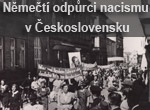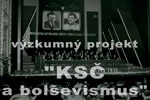Section for research in the field of transformation and migration processes after 1945
Hlavní stránka » pages » Departments » Section for research in the field of transformation and migration processes after 1945 »
The section focuses on transformation and migration processes as a function of contemporary Czech and Czechoslovak history in the context of international developments (roughly covering the period from summer 1945 to 1967). During this epoch, Czech society experienced marked changes in the political, economic, cultural and national fields. The years 1945-1948 saw an attempt to come to terms with the former Nazi occupation of Czechoslovakia and to address the insufficiencies and problems of the interwar liberal system by looking for measured steps that would lead to the renewal of Czechoslovak democracy and to the simplification and redress of national relations. Given the constellation of domestic and international forces then prevailing, however, and the fact that the Communist Party, the dominant factor in the enterprise, had its own specific agenda, this effort was unsuccessful. Undemocratic elements won the day and Czechoslovakia’s interests were subsumed under those of a foreign power. The Communist takeover of government in 1948, an event that was accompanied by widespread lawlessness, repression and persecution, led to the liquidation of political and economic democracy, political and civil liberties, international rights and those of national minorities, and the principles of a legally constituted state. The Czechoslovak body politic, indeed, underwent total transformation in all major spheres.
Jiří Kocian








